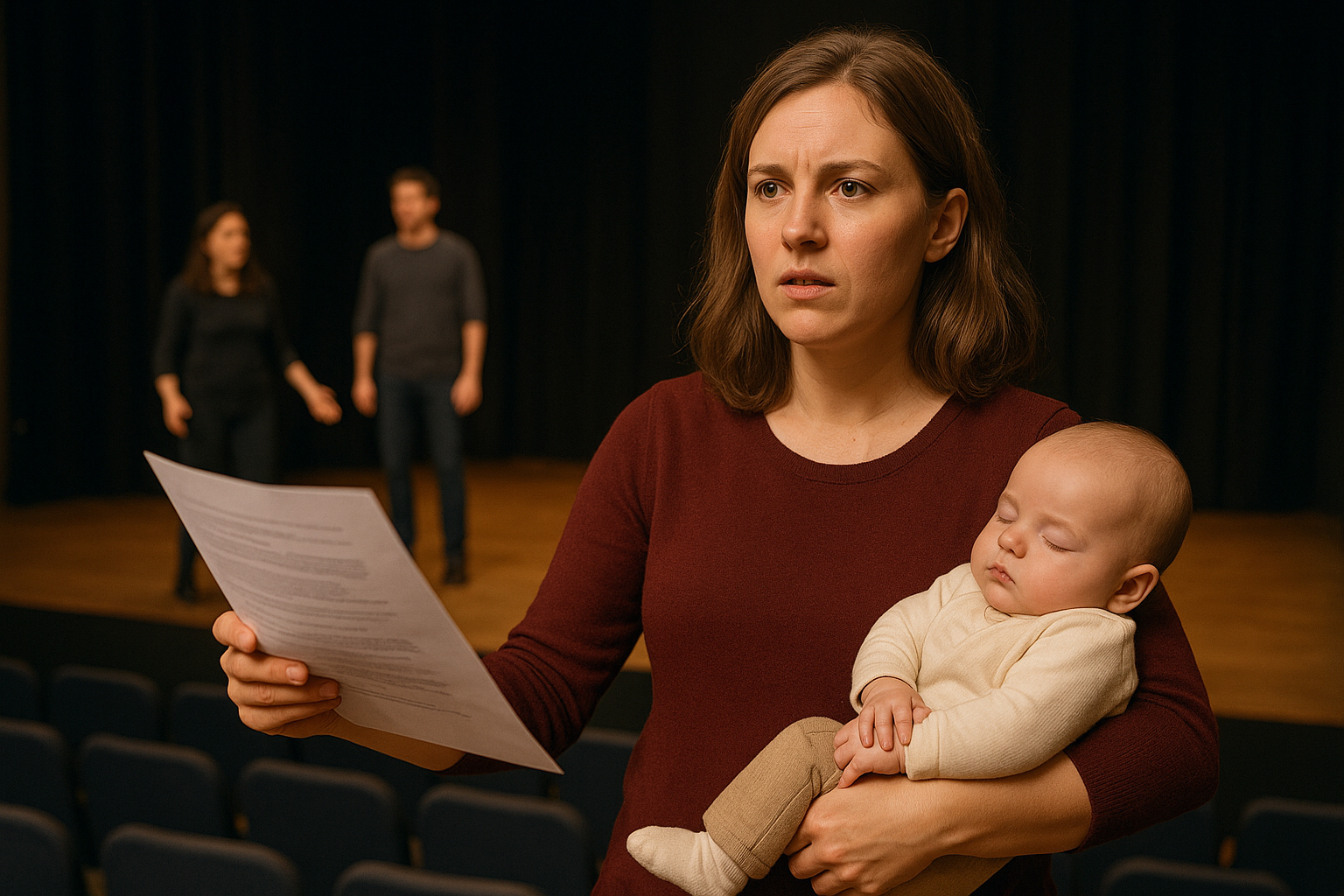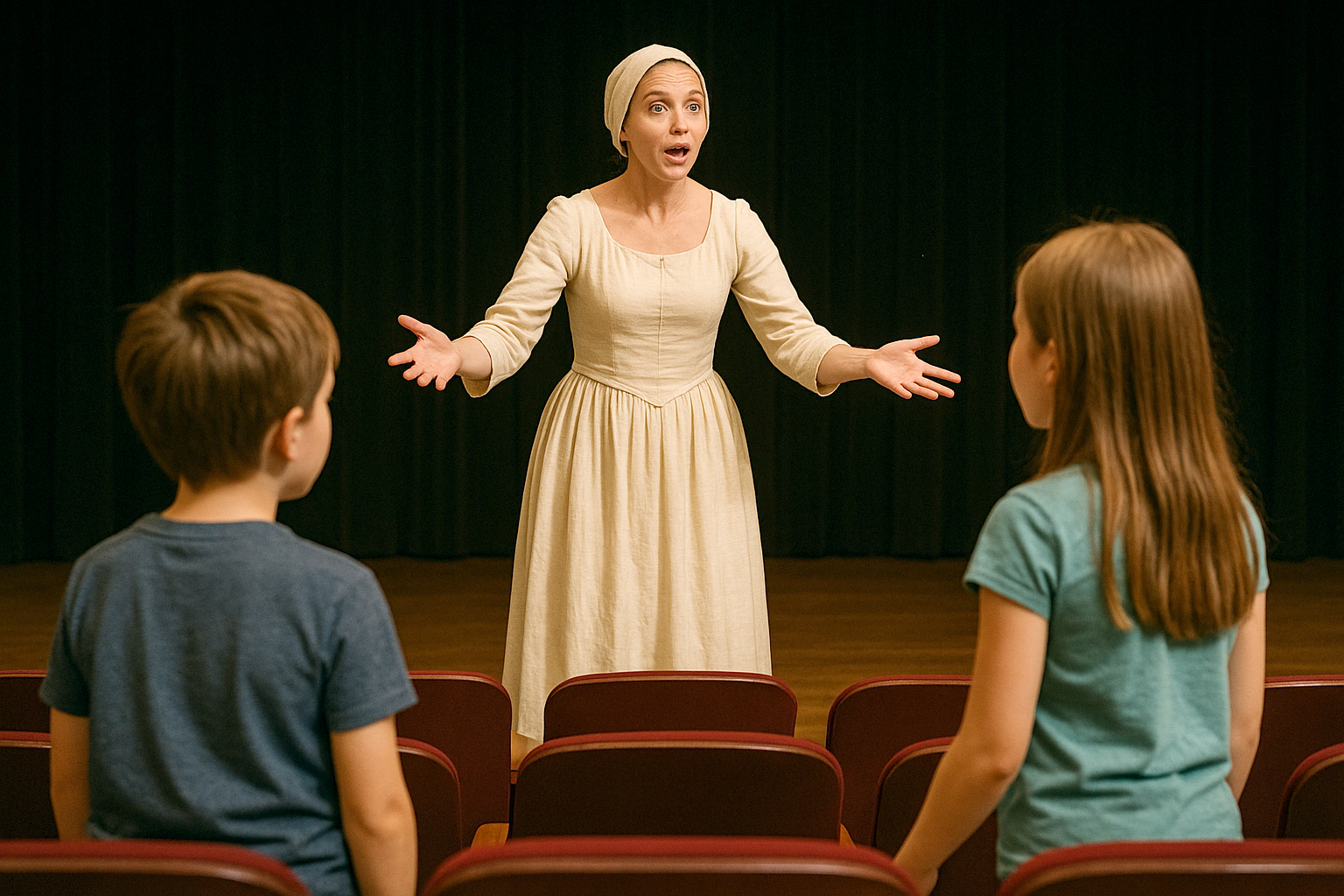Mothers in theatre. Why are they treated differently?
26th August 2025
Being a mother in the theatre industry can be incredibly tough. While talent, professionalism and commitment should be the only reasons why women are chosen for jobs, mothers are often judged on their circumstances, sidelined from opportunities or overlooked in favour of those without children.
But what does this really say about how the industry views mothers? Why does being a parent still feel like a huge barrier?
Theatre is about telling human stories that resonate with audiences and giving people from all backgrounds a voice. Yet, ironically, there never seems to be a production that tells the struggles of the mothers or other parents, how they hold down a successful job or attend auditions, all while running a family and helping their children thrive.
Mothers are making it all happen, both on and off the stage. They need to be supported and celebrated, not made to feel guilty or that they are not good enough.

While their training and talent are equal to their peers, mothers in theatre still face barriers, such as lack of childcare and cultural biases. It’s no different to other industries, but because theatre works in unsocial hours e.g. late at night and weekends, it’s harder to find the support that’s needed and at a reasonable cost.
The sad truth is, that producers, casting teams etc, assume mothers can’t commit to long rehearsal days, late-night performances, touring schedules and other elements that come with the job. Knowing that they have the best talent is all they should be focussing on.
Being aware that the industry feels this way about mothers, can make women feel even more guilty than they already do. Guilty for letting their company down, guilt for not being there for their family, guilt for not putting themselves first.
Not taking anything away from the dads, as they also can feel this pressure, but they aren’t treated the same as mums. Men often get the kudos for balancing work/life, seen to be working hard and supporting their family. A woman doing the same would be treated differently.

Tamara Harvey, co-artistic director at The Royal Shakespeare Company, was once told by a man that ‘you can’t do this job and have kids.’ She, along with other mums in theatre, including Steph Parry and Marie Hamilton, have said in The Stage they would like the industry to ‘normalise practices such as job-shares, part-time touring options and childcare support’ and ‘normalise the advance availability of whole rehearsal schedules.’
At The Play’s The Thing Theatre Company, we already do this. We give out a draft schedule before rehearsals so that people know what is happening and when and can plan their lives! Many actors have praised us for this.

For freelance mothers, who make up a large proportion of the industry, they need this kind of support. Unlike permanent staff, they don’t receive statutory maternity pay, parental leave or childcare schemes. A job-share or seeing schedules early, would be a win-win for everyone.
Other ideas for support could include:
- Childcare bursaries built into freelancer contracts
- Flexible rehearsal schedules that take parents into account
- Changing the narrative and normalising parenthood in casting
- Highlighting parents in theatre to show that its possible and the industry supports it
We are losing a wealth of female talent, because the industry won’t adapt fast enough.
Theatre prides itself on being progressive and inclusive. If that really is the case, then it must reflect the world we live in and embrace working mothers.
Questions we must ask is how many productions are there that tells a positive story of mothers working and supporting their family? How many shows and companies are we losing because mothers aren’t being supported?
Change needs to happen. Now.